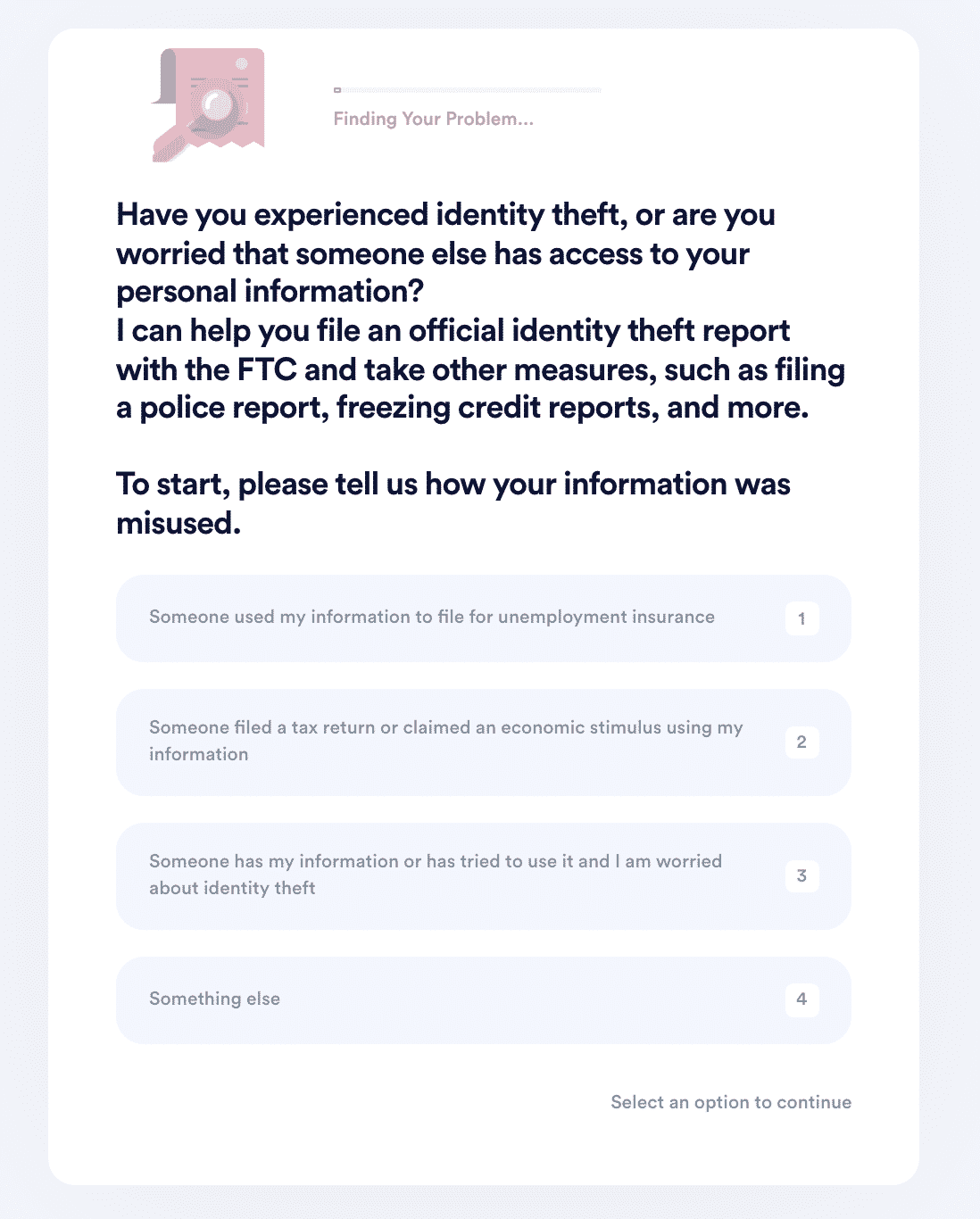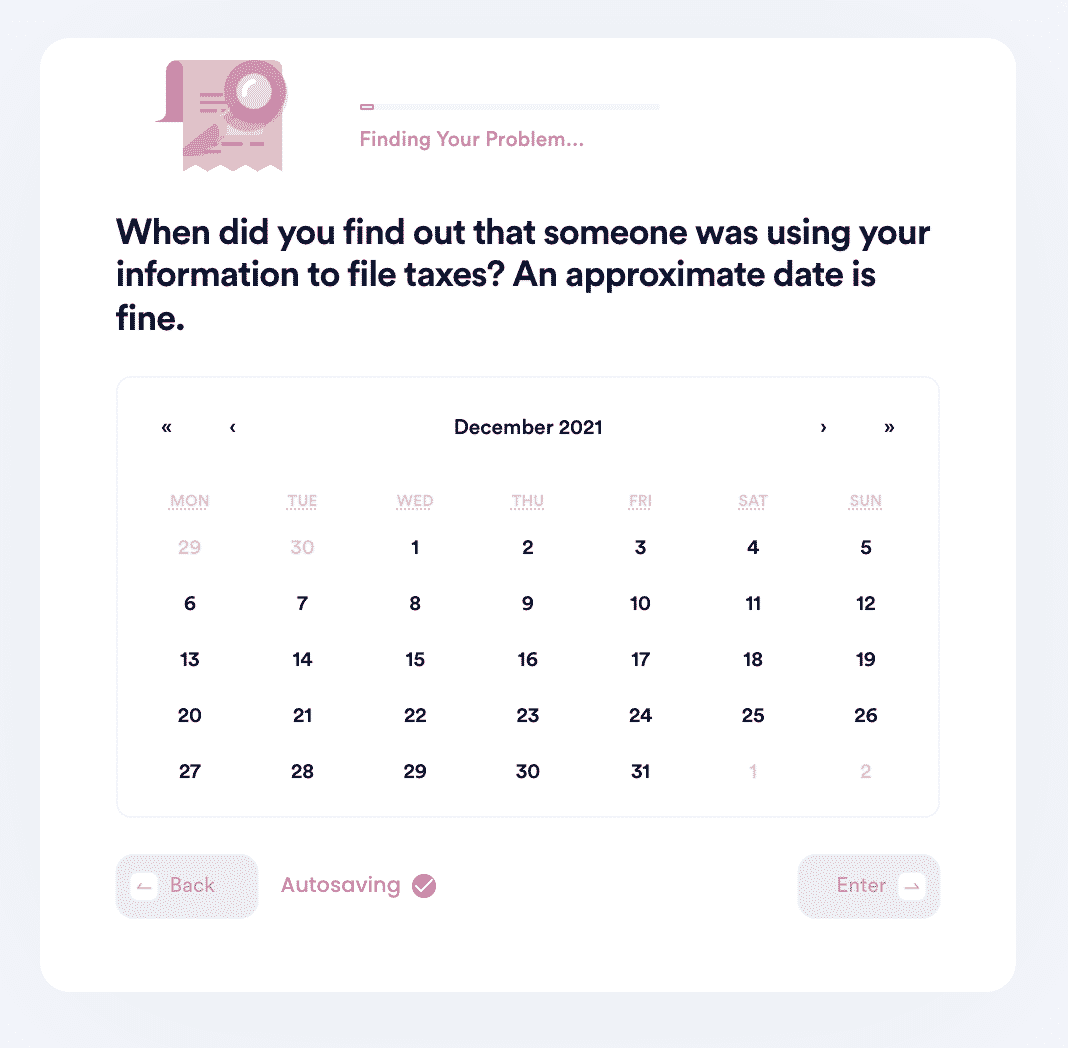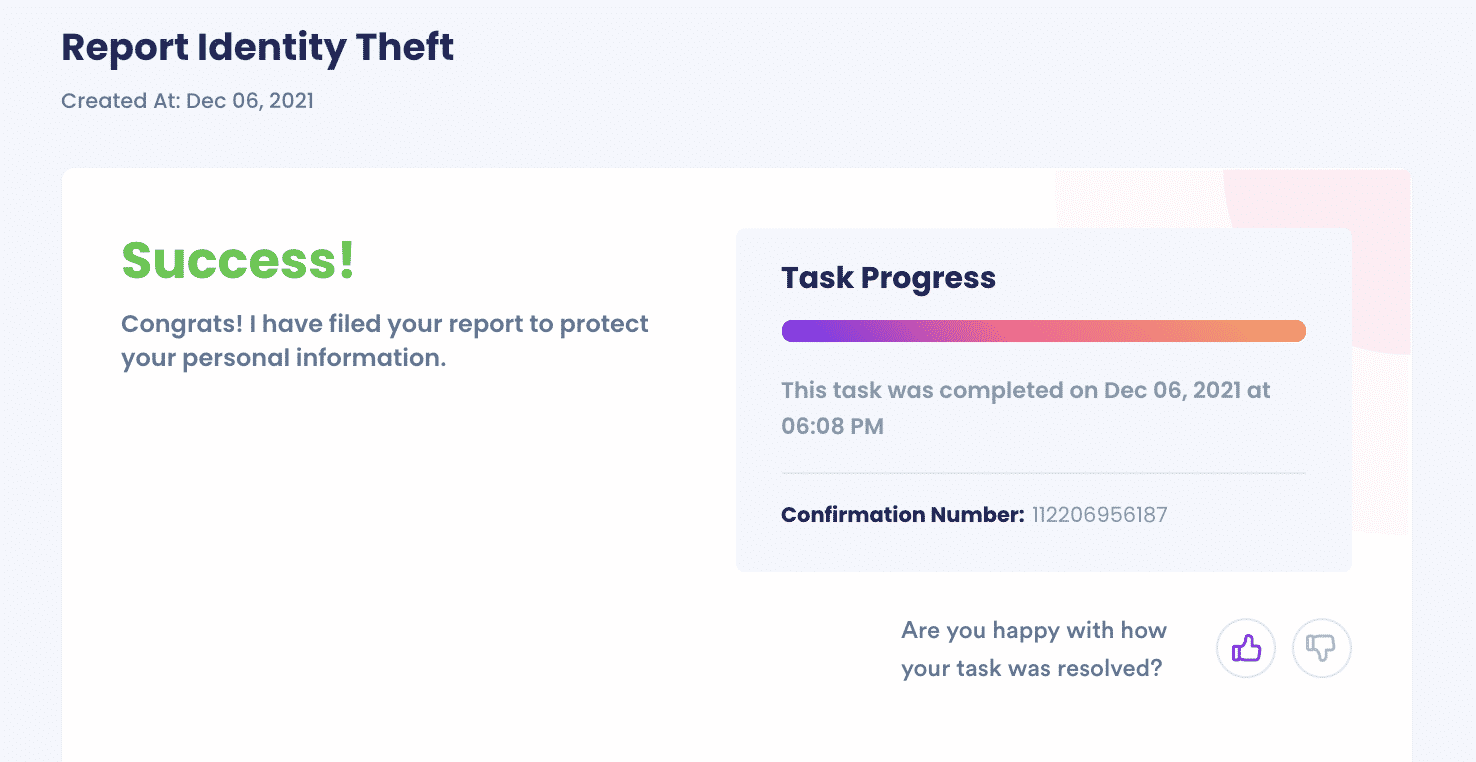Someone Stole My Stimulus Check: What To Do If You Face This Nightmare
The United States government sent out multiple stimulus checks over a period ranging between early to mid-2020 and early 2021, but if you say "someone stole my stimulus check", you need answers as to what to do now. They did this to try to help spur economic growth during a period of time when many people did not feel like spending money. Lockdowns and quarantines had gripped the nation, and millions of people lost their jobs all at the same time. The were a major lifeline for those who saw no hope in their economic future. They were also a prime target for thieves, and that is why DoNotPay has created a special suite of services to help people who may have lost their identity as a result of someone stealing their stimulus check.
What Is Identity Theft?
The term identity theft is an umbrella term that covers an extensive range of illegal activities that someone may do in order to get information that does not rightfully belong to them. Typically, the identity thief is looking to steal personal information about another individual in order to make purchases using the funds of that individual or to steal money directly from them if possible.
How Can You Become The Victim Of Identity Theft?
You might wonder how it is even possible that you might become the victim of identity theft yourself. The answer boils down to a series of different possible things that could be an attack point. Consider the following ways that a thief may get your information:
| Data breach | When someone acquires unauthorized access to an organization's data, this is known as a data breach. Full names, Social Security numbers, and credit card numbers are the most typical forms of information taken in data breaches.
It's nearly hard to keep your information safe from a data breach since individuals have so many accounts with different businesses and organizations, but there are things you can do to reduce your risk. |
| Mail theft | Identity thieves have been scouring the mail for documents containing personal information even before the internet. Any document you send or receive through the postal system, including bank and credit card statements, can be intercepted and exploited to get access to personal data.
You should shred any old mail that may contain personal information before discarding it. |
| Purchased on the dark web | Your personally identifiable information is frequently found on the dark web after it has been taken. Hackers may not be taking your information for personal gain, but rather to sell it to others with possibly harmful motives.
The dark web is a network of websites that can't be accessed with standard browsers. People who utilize specific software to hide their identity and activities on the dark web, making it a sanctuary for fraudsters. Anyone might buy your information if it winds up on a dark web marketplace, putting your identity in jeopardy. |
| Phishing attack | Email, text messaging, and other kinds of electronic communication are used by some fraudsters to obtain your personal information. The communication frequently seems to be from a credible source and requests that victims provide one or more pieces of information.
For example, a phony email purporting to be from your bank can include a link to a spoof website that seems identical to the one it's imitating. When you arrive, you may be asked to provide a login and password, as well as payment card information or your Social Security number. It's possible that something odd is an effort at identity theft. |
| Credit card theft | Credit card theft is one of the most basic types of identity theft. If a criminal gets their hands on your credit card information, they can make illicit transactions with it.
Data breaches, physical theft, credit card skimmers, and online retail accounts where card information is kept are all common ways credit card fraud occurs. |
These are just a few of the everyday ways that people become victims of identity theft. It is hardly any wonder that millions of people end up as victims of these schemes when you consider just how many possible ways there are to get at someone's information. It is troubling, and it should leave us all on edge as we think about our own identity security and how to protect it.
What Kind Of Damage Can An Identity Thief Do?
It is, unfortunately, the case that identity thieves can steal quite a bit from you, including a stimulus check. In fact, thieves had no problem at all rerouting many of those and depriving their intended recipients of some much-needed money. They can do much more on top of this as well. For example, someone with the right documents can easily:
- Fraudulently access online accounts
- Apply for loans and credit cards using the victim's name and information
- Obtain drugs that they should not have access to
- Get a fake identification using the victim's name
- Apply for government benefits in the victim's name
A lot of damage can be done to one's good name and reputation all because someone out there stole an identity. It can literally take years to get this all sorted out, and the victim can be left behind trying to pick up the shambles that are left over from this wild adventure. Obviously, no one wants to be put in that spot, and they shouldn't have to be. If you are afraid that you have or might become the victim of identity theft, you need to take action now.
What Can You Do If You've Become a Victim of Identity Theft?
- Call the businesses where you believe the scam took place.
- Set up a fraud alert and obtain copies of your credit reports.
- Report identity theft to the Federal Trade Commission.
- You have the option of reporting the incident to your local police station.
Tackling Identity Theft Issues With DoNotPay
If you want to get to the root of your identity theft issues and get them solved, there is no better way to do so than to use the services of DoNotPay. They are experts in helping people change the course of this crime and make things come out a little better for the victims of identity theft. Follow these steps to get started:
How to deal with identity theft using DoNotPay:
- Search "identity theft" on DoNotPay and select the type of incident you would like to report.

- Tell us more about the incident that occurred, including the location, date, time, financial loss, and any suspect information you may have.

- We'll identify whether you should file an FTC report, contact the IRS, freeze your credit report, contact state agencies, or file a police report. Once we guide you through the best options, we'll automatically submit the reports on your behalf!

How Else Can DoNotPay Help In This Situation?
You may feel that you are completely alone when your identity is stolen. It can feel like a personal nightmare that you cannot escape from, but that is not exactly the truth. There are plenty of others who have gone through this same experience in the past, and DoNotPay has helped many of those victims reclaim a sense of self after they have gone through this experience.
DoNotPay offers a range of services to help those who have had their identity (and perhaps their stimulus check) stolen including:
- Helping with claiming compensation for victims of data breaches
- Assisting with locating the best lawyers to fight these cases
- Providing for filing reports, complaints, and other important information
They make the bureaucratic part of the process a little easier for you so that you can focus on getting your affairs back in order after having the carpet pulled out from under you by a criminal. They are a great resource to have in your back pocket as you deal with the ramifications of identity theft.
 By
By